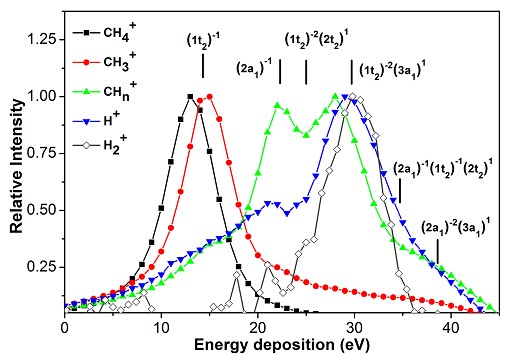Dissociative ionization of molecules is important in many fundamental areas, such as plasma physics and chemistry of planetary atmospheres. New Progresses have been made in the dynamic studies of the dissociation of methane in cooperation between atomic physics groups in Institute of Modern Physics, Chinese Academy of Sciences (IMP), Lanzhou, and Max-Planck Institut für Kernphysik (MPIK), Germany. The dissociative ionization of methane induced by 54 eV electron impact has been investigated using a reaction microscope. Through the triple coincidence measurements of the two electrons and one positively charged fragment in the final state, the species of the fragments are identified, and the energy depositions in the target are determined. The fragment ion species and kinetic energies strongly depend on the electronic state of the parent ion. CH3+ is mainly produced from dissociation of (1t2)-1 state, while the (2a1)-1 single ionization state mainly attributes to CH2+ and H+. This method could be applied to investigate the dissociation process of other molecules in the future. The results have been published in The Journal of Chemical Physics 138, (2013) 134307. 
Fig.1 The energy deposition distributions of different ions. (Image by IMP) |

